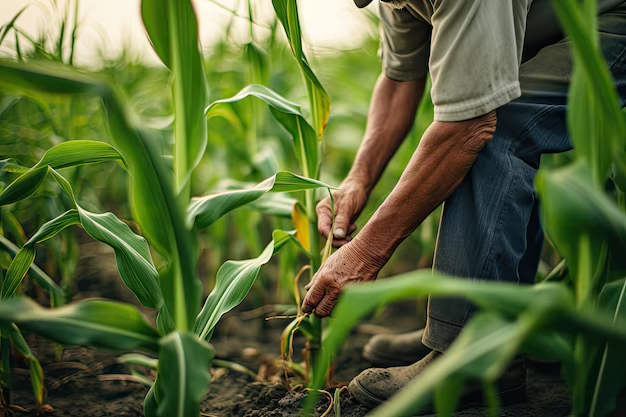Farming and gardening hand tools play a crucial role in different facets of crop growing including plowing, planting and harvesting. They have features such as flexibility, mobility and in some cases involve little capital investment for a mechanical one. Here are some common agriculture hand tools and their uses:
Soil Preparation Tools
- Plow: Keenly employed to invert the soil, to crumble clods and invigorate it.
- Hoe: A tool with a bespoke design to facilitate the process of weeding while also being used to loosen soil and make furrows.
- Spade: An instrument used for making furrows, throwing over after sowing, to dig with or family, plane.
- Rake: Employed for a purpose of collecting leaves, distributing manure and of leveling the soil.
Planting and Harvesting Tools
- Transplanter: A device which is used to gently transfer seedlings from one place to another.
- Seed drill: An implement used in placing seeds in a desired hole depth and appropriate space.
- Sickle: A sickle type of implement used in cutting of grass, weeds and crops.
- Harvesting knife: A-sort of sharp-edged handmade instrument with a pointed end for slicing different fruits and vegetables.
Maintenance and Care Tools
Pruning shears: It is used when trimming trees and shrubs, branches and twigs.
- Weeding fork: A piece of equipment that is ideal for plucking weeds from the ground since it possess very sharp thin prongs.
- Watering can: For irrigating plants, especially seedlings that are grown in containers.
- Sprayer: Employees used it in spraying pesticides or herbicides in crops other than coffee and fertilizing crops.
Specialized Tools
- Potato digger: An application intended to help a farmer easily excavate potatoes.
- Carrot harvester: A mechanism used in the reaping of carrots without the unwanted ear on them.
- Grain cradle: An implement utilizing to gather harvested grain into bunches.
- Winnowing fan: An instrument of winnowing whereby lighter chaff is blown away leaving the heavier grain behind.
Choosing the Right Tools
That means that when a farmer is selecting the appropriate agriculture hand tools; he has to consider the crop to be planted, the size of the parcel of the land and even his or her preference. Consider the following when selecting tools:
- Durability: Select tools from highly resistant material that you can afford, since farming can be very rigorous.
- Ergonomics: Choose tools with favorable grip designs that do not stress your hands or wrists to the extreme.
- Versatility: Always seek to identify tools that serve more than one functions so that you can increase their usefulness.
- Weight: Think about the weight of the tools if you will be using the tools in your hands for sometime.
When farmers use appropriate tools in agriculture they are able to work smart, minimize expenses, and have healthy crops. Hand tools are despite the availability of sophisticated equipment significant tools in agricultural practices across the world.
These tools provide versatility, selectivity, and durability, which are very useful in smallholding agriculture, intervention in difficult to reach places, or particular requirements for particular crops. These hand tools will remain indispensable to farmers and gardeners around the globe as technology advances and with higher skill levels and new and better types of hand tools.




